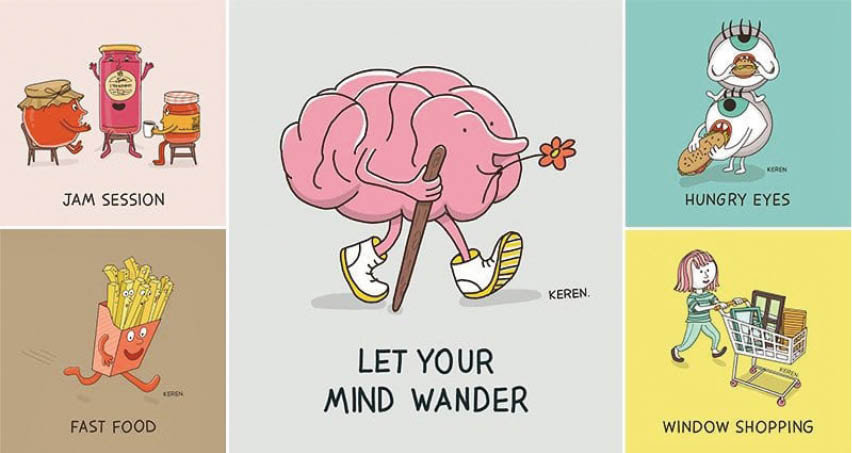
An idiom plays a very lively part in making our speech and writings more lucid and elegant, and often makes the point of conversation, debate, or argument more explicit and impressive. Of course over-use of Idiomatic phraseS can reduce it to a cliché, so be careful how you use your idioms. Some idioms often sound silly or idiotic but they are not so. They only sound so. There is always a wealth of meaning behind them. Let us analyze a few…
‘Tickety-Boo’: A very British way of saying everything is all right, the way it should be, correct and proper. This phrase probably dates back to the British Raj from the Hindi phrase “theek hai babu” (everything is alright) corrupted to “Tickee babu” and eventually to the English “Tickety boo”. This phrase became quite famous from the song “Everything is tickety-boo” sung by Danny Kaye in the movie Mary Andrews. See – not so silly!
‘Hunkey-dory’: When one says everything is hunkey-dory it means everything is alright or safe. It is almost similar in character as Tickety-boo. The word ‘hunk’ is of Dutch origin meaning ‘goal’ or ‘home’ referring to or a goal in football, soccer or hockey, or home run in baseball. ‘Dory’ is a reduplication (copy) of the first word that may mean nothing but it rhymes like in okey-dokey, hanky-panky, or namby-pamby.
‘It’s Raining Cats and Dogs’: Very heavy rainfall. Sounds silly, right? Yes, but once you know the origin of this expression, it is neither absurd nor hyperbolic. This interesting expression began in England around the 16th century. The houses then had roofs thatched with thick layers straw without any wooden support underneath. In cold and foggy England, cats, puppies and other small animals found the roofs a cosy retreat. When it rained very hard these little creatures would slip off through the thatch falling on the ground, hence the idiom “Raining cats and dogs.”
‘Break a Leg’: This is a sort of a Good Luck wish to an actor going on stage. It is a counter-intuitive phrase. It was believed that to wish someone Good luck would be like tempting the evil spirits to do harm to the person embarking on a venture thus bringing him/her bad fortune. This is an example of reverse Psychology.
Adding on, even ‘Ghosts’ have been the source of many English idioms:
‘The Ghost Walks Tonight’: Salaries will be paid today. This phrase has its origin in the story of an actor who was playing the father of the Ghost of Hamlet – an essential role in the famous “To be or not to be” soliloquy. He refused to walk on the stage until his long overdue salary was paid. Only after his salary was paid, did he go on stage to do the ghost scene. The word went around, “the Ghost walks tonight”
While speaking of ghost, phantasmagoria and eerie idioms, following are the rationale behind the three idiomatic phrases on the similar subject, each connected to the other, ‘The Graveyard Shift’, ‘Dead Ringer’, and ‘Saved By A Bell’.
‘Graveyard Shift’: There was a time when English towns and cities were pretty crowded and the cemeteries ran out of place to bury the dead. To try and solve the problem of this paucity of burial space, older coffins were dug up out of the ground and the bones from these coffins were sent to rest in what was called the bone-houses. This must have been done in secrecy at night and all those working to exhume the bodies were said to work the graveyard shift. Hence all those who work at night, mariners on the night watch, the taxi-drivers, the night duty policeman, nurses, doctors, the present day call center staff and many others are said to be working the graveyard shift. So far so good, but many a times it was found that the coffins dug out to be reused had scratch marks on them indicating that the ‘dead man’ had been alive but unconscious when buried and when he came to his consciousness he had struggled to get out of the coffin but to no avail and had eventually died! Horrible death indeed! Sounds something Edgar Allan Poe would dream up!
‘Dead ringer’: The fear of a near and dear one being interred while still alive led to an innovation to prevent such an occurrence. A string was tied to the wrist of the corpse. The string was passed through the coffin and up to the ground where it was attached to a bell. If the corpse was still alive in the buried coffin he would naturally struggle to get out and this would set the bell ringing. Of course, a vigil would have to be kept outside near the grave at least for the first couple on nights, during the ‘Graveyard Shift’ to listen to the ‘dead ringer’ ringing for his life! Thus one can say that he was ‘Saved By The Bell’ So far no such a case been recorded.
The term dead ringer is often used for someone who bears a strong resemblance to another person, a look alike. It was also a ploy to misguide and cheat the punters. A popular horse with a very good track record would be entered for a race attracting heavy bets by the punters upon this horse. The horse that would actually run the race would be a dead ringer of the original horse, almost a look-alike horse, but of a very bad track record, a nag. The dead ringer would lose and the bookie would go laughing to the bank.
More to come sometime later. Editor Madam is screaming, “Oh Khodai! (sans ‘Ji’) Tukku karo.” Madam e bhi Khodaiji ne tukkoj kidho! That’s economy of words!!
- 48 And Still Going… Er… Um.. Strong! - 8 February2025
- Parsis – The Sweetest Bunch! - 28 December2024
- Hep Grannies, Swingin’ Grandpas!’ - 10 August2024
